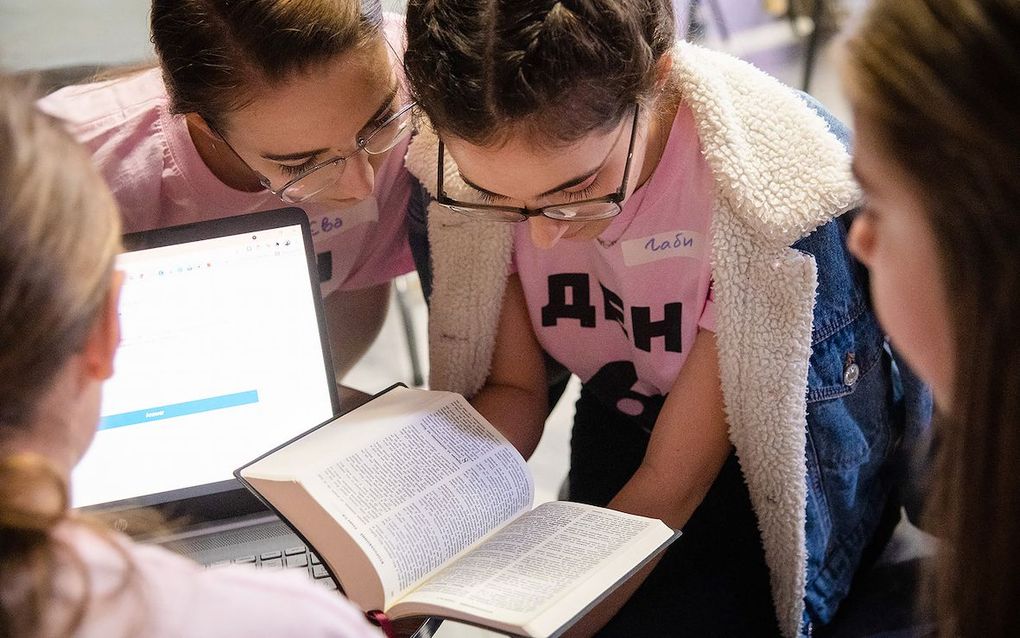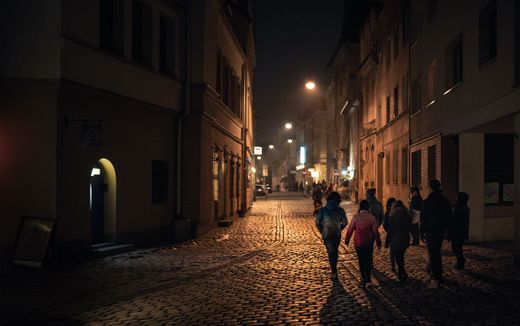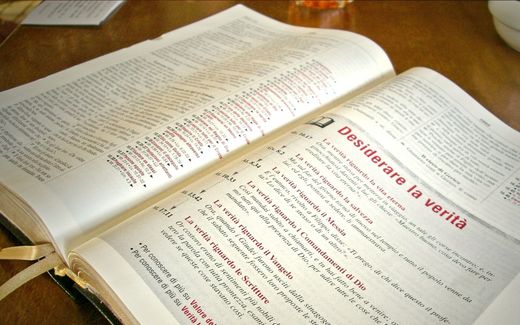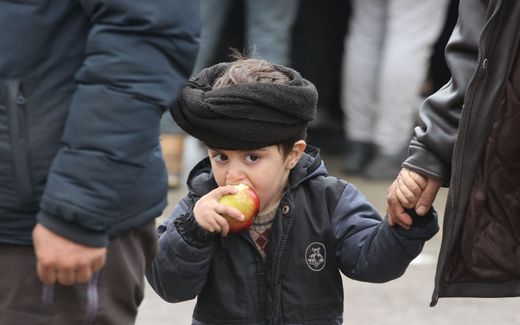Weekly Column: How a Bible Competition may start a revival in Bulgaria

Gabriela holding Bible. Photo Scripture Union Bulgaria
Christian Life
Dozens of teenagers were flipping the ancient pages right before my eyes. I watched with fascination how boys and girls were busy working with the Bible. Some were as young as nine years old; others just turned twenty. The air was filled with tension as 114 youth, grouped in teams of four, participated in the tenth consecutive "Bible Knowledge Competition", an annual initiative of Scripture Union Bulgaria.
"I used to have a hard time studying the Bible on my own", says Gabriela Georgieva, who turned 19 just three weeks before the event. "But as I joined a team, I truly started enjoying reading the Word in the process of preparation. I loved digging into the tiniest details of the text. And it turned into a habit, an indispensable part of my personal quiet time."
What must Jeremiah hide?
The competition program includes four rounds of questions with increasing difficulty: some open questions and some multiple-choice questions. "What did Jeremiah need to hide in a mountain crevice by the Euphrates River as a sign of Judah's broken pride?", one question asks. The kids only get a few seconds to click on the correct answer. They can choose between the following options: ( a ) a chief guard seal; ( b ) a linen loincloth; ( c ) a prophecy scroll; or ( d ) a list of household heads.
The 10th Bible Competition was held on May 8, 2021, as Bulgaria recovered from its second Covid wave. Connected through a live stream, the participants, on average 16 years old, met in four cities: Burgas, Sliven, Plovdiv and Sofia. They represented 24 churches from various Evangelical backgrounds. Since the first competition, back in 2011, a total of 1024 teenagers, have participated in the game. They came from about 30 towns and villages in Bulgaria.
Vlady Raichinov (1974) is translator of both fiction and theological literature. He is a member of the Union of Bulgarian Journalists, co-hosts a radio program, and writes articles.

He presides over the Bulgarian Evangelical Society, publisher of "Zornitsa" – the oldest Bulgarian newspaper that has been in print since 1871.
In December 2014, Vlady was ordained as a minister with the Bulgarian Baptist Union and is currently serving in the pastors' team of First Baptist Church, Sofia. He is also vice president of the Bulgarian Evangelical Alliance.
Vlady and his wife Katya parent a beautiful pre-schooler named Maria.
For the past decade, the initiative has been a highlight for many Christian families. To prepare for the competition, children engage in studying the Holy Bible for months. During that time, they are monitored by team coaches, youth leaders and Sunday school teachers. In a time when their non-Christian peers barely read any literature, the energy of these youth is spent on a constructive and fertile exercise, with a twist of competitive zeal.
Reading is in decline
According to Eurostat's annual report on World Book Day, the spending of European households on literature has been steadily declining. Money spent on books has shrunk from 2 per cent in the early 90s to about 1 per cent of annual family budgets today. Bulgaria is positioned last on the list with only 0,6 per cent of household funds allocated for literature.
In statistics about "time spent in reading" and "share of people reading books", Eurostat charts are topped by countries like Estonia, Poland and Finland. In contrast, Bulgaria is again at the very bottom. Only one out of every five men, and one out of every three women in Bulgaria have read more than five books during the past year. Instead, the top two activities preferred in their leisure time are watching TV (95 per cent) and online browsing (50 per cent of Bulgarians).
Only a handful open the Bible
Why am I telling all this about statistics? Well, if appreciation for literature is so terrible, the situation is even sadder concerning Bible awareness. Even though Bulgarians profess a predominantly Eastern Orthodox belief system, only a handful of people ever open the Holy Scriptures and even less read or explore them.

The country has declared itself "a Christian nation" since the late 9th century, but this relates primarily to cultural habits and perception of ethnic identity rather than the profession of core Biblical beliefs or apprehension of Biblical doctrines.
In Communist times, owning or distributing Bibles was punishable by prison. The totalitarian regime realised how potent the Holy Scripture message of freedom could be and how it could undermine the Party's authority and Soviet propaganda axioms. Today, personal reading the Bible is a matter of free choice. Yet, it has been strongly discouraged by the national Eastern Orthodox religion unless done under close supervision and proper interpretation by ordained clergy.
Historical impact of the Bible
Bulgarians may take pride in introducing Cyrillic as the third official alphabet in the European Union. Still, they should remember that it was coined by the Thessalonian monks Cyril and Methodius precisely to translate Christian literature and the Holy Scriptures into Slavic language.
It was not a literary culture that the two missionaries attempted to introduce; it was Biblical faith. Diligently, they studied the vernacular of Slavic tribes and translated Christian books hoping to spread the Gospel of salvation.

A thousand years later, in the mid-19th century, a new team of missionaries laid their best efforts to translate the Holy Scriptures into the modern Bulgarian language. Methodist minister Dr Albert Limerick Long and Presbyterian linguist Elias Riggs joined hands with educated Bulgarians. As a result of a deeply committed labour, the team published The Tsarigrad Bible in 1871 – it is probably the most widely recognised Bulgarian Bible translation today. As the new scriptural text was gaining popularity, Bulgaria was just breaking free from a 500-years Ottoman occupation. And thus, the text of this Bible predetermined the newly coined grammar and culture of the independent Kingdom of Bulgaria.
150 years of Bible in modern Bulgarian
In 2021, Bulgaria celebrates the 150th anniversary of the modern Bible translation. In a season when intelligent devices have been overcoming good old-fashioned books, this anniversary, and the 10th Bible Competition, are a milestone that may just contain the answer we are looking for.
Today, Gabriela is no longer a contestant; she is coaching two new teams of teenagers, ready to compete in the 2022 Competition. "My true desire is to assist the youth in developing the self-discipline of reading", says Gabriela. "If they know the Bible, no matter where they end up in the competition, they will still be more than conquerors."
Related Articles






